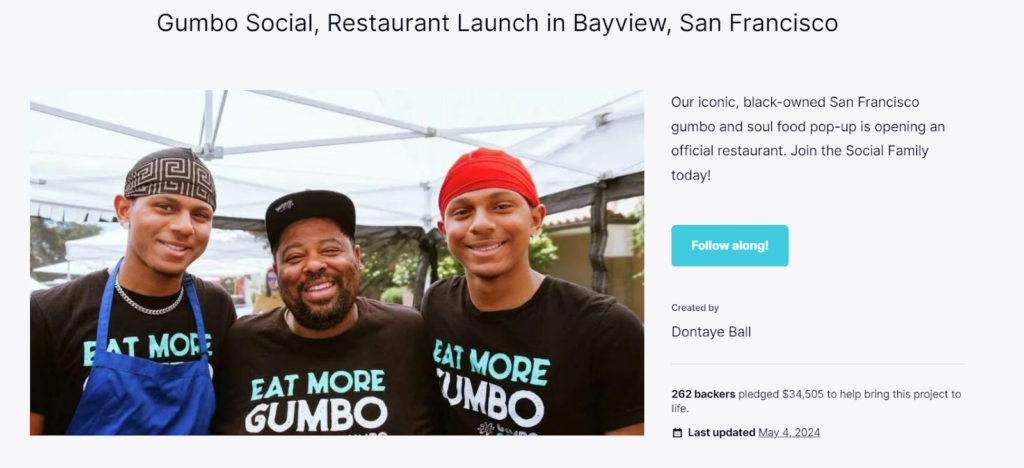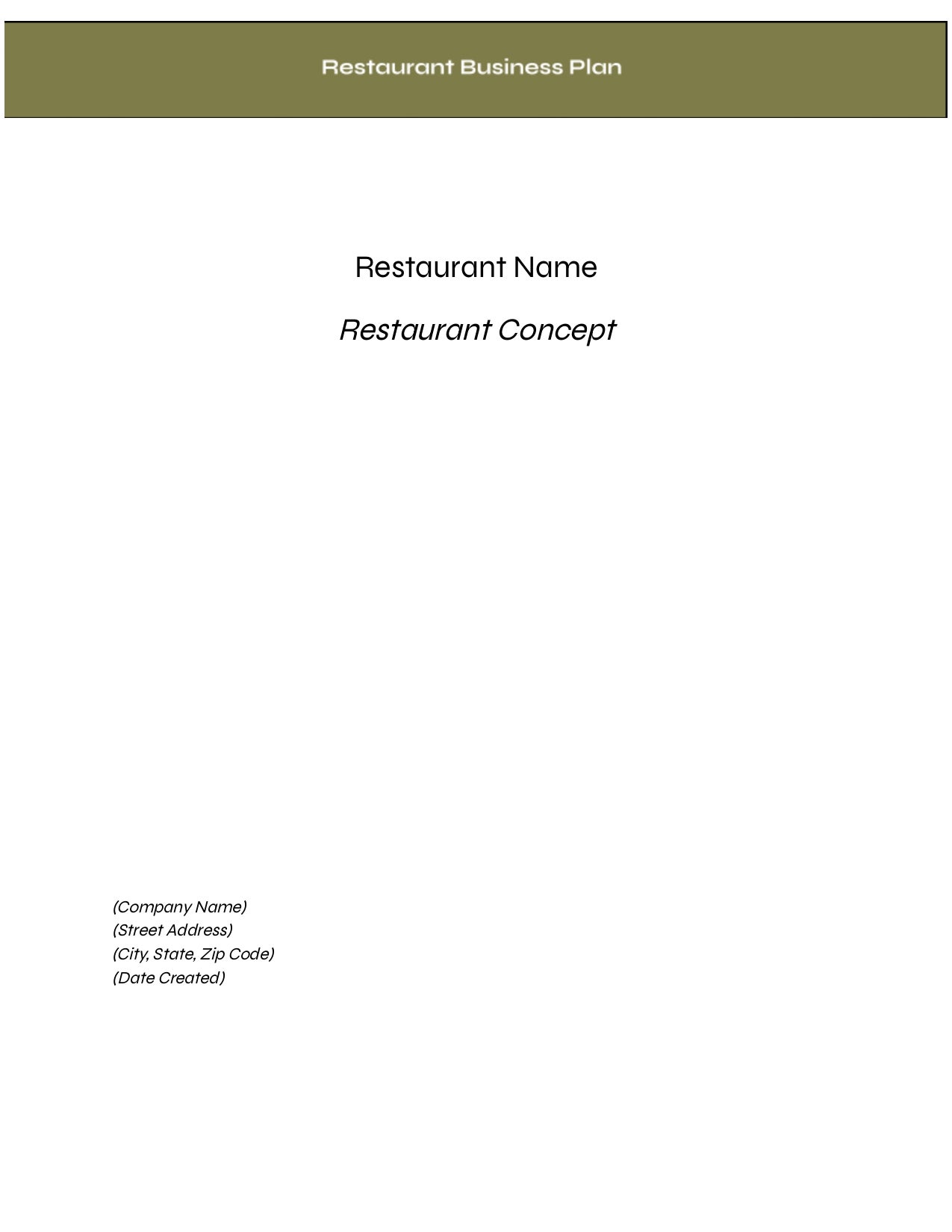Starting a restaurant takes a lot of capital, and finding investors to start a restaurant is a key task for many restaurateurs. Whether it is money to buy a new space, renovate an existing space, or expand a brand, a restaurant investor helps generate the funds for new beginnings in the restaurant industry. In this article, we break down the best ways to attract investors so your restaurant concept can see its full potential.
Key Takeaways
- Finding restaurant investors requires utilizing professional connections, social media, professional networks, and your local community.
- Understanding how to present your business to potential investors is vital to success.
- There are pros and cons to working with restaurant investors, so it’s crucial to weigh both before making a decision.
1. Get Active in the Food & Beverage Community
One of the best ways to succeed in many different aspects of your restaurant is to become engaged within your local food and beverage community. I cannot tell you how many doors have opened for me personally and how many business opportunities I have seen created simply through walking a farmer’s market or hosting an industry-related event.
The restaurant industry is full of potential restaurant investors, and being engaged gets your name out there. Below are some key ways you can be active within your local food industry community:
- Build relationships through farmer’s markets, food auction houses, and other local suppliers.
- Take on hosting branded events that business owners and financiers can attend.
- Connect with local chefs and restaurateurs at industry nights and other food industry-focused gatherings.
- Join local Facebook groups for your restaurant’s food scene. These groups are great portals into a niche but valuable audience.
- Support or participate in fundraisers for nonprofits such as World Central Kitchen or Share Our Strength.
- If you’re opening a restaurant, inviting known investors to a soft opening or tasting can be beneficial.
While the food industry is known to be cut-throat, the community of chefs and food business owners available is often supportive. When you can integrate into this and use it to your advantage, the local food community can be one of your strongest assets.

Kickstart your capital with Guidant Financial
There’s more than one way to fund a restaurant. Guidant Financial can help you discover funding strategies beyond traditional loans. Their industry experts are in your corner with step-by-step guidance and administrative and compliance support.
2. Create a Compelling Pitch Deck
Pitch decks have been used to great effect in the tech and finance worlds for many years, but they are also useful in the food world. A restaurant pitch deck is a visual aid for sharing the inner workings of your business and why an investor should invest in your restaurant. Think of a pitch deck as the alluring menu description that makes a customer buy a dish. It is the hook, the tangible promise of a good product to buy into. Below are some of the components you should aim to have in your pitch deck:
- Your business’s value proposition and vision for its future with proper financing
- The type of food you are selling and the proposed guest experience
- Your expected target market and how your business adds value to customers
- How your concept is an asset to the local community
- Visuals of the product, your business model, and how the business will make revenue
- Your expected marketing and sales strategy
- Team organizational structure
- How investments in your business will be used

3. Write a Business Plan
If a pitch deck describes a meal, a business plan is the actual meal itself. A business plan details the many different aspects of how your business will function and operate. Below are some of the key components of a business plan:
- An executive summary detailing your mission statement, proposed concept, execution, the costs of the business, and the revenue and profit expected from this business
- Your company’s legal structure and standing
- How your food is served and the general guest experience
- Size of the restaurant and operating hours
- The cuisine and the different business channels it will be sold in
- Unique selling points of your overall concept
- Your target market, a mock-up menu, and how you will accomplish serving your menu
- Employee org structure and amount of employees needed
- Location of business and your marketing plan to the local community
- Financial projections for the overall success of the business
A business plan is a great tool when answering questions about attracting restaurant investors. It is an organized document that guarantees that time, energy, and thought have been put into your business. An investor can use it as a framework to weigh the pros and cons of their investment decision and how they can stand to gain if the business is successful. Thus, it is vital for your business plan to be professional, accurate, and alluring to potential financial backing.
For more information on restaurant business plans, see our guide to starting a restaurant or download our template below.
4. Leverage Your Personal Network
Do not underestimate the personal network you may have in and out of the food industry. While restaurant profit margins may be low, there is still plenty of interest in the right food business. If you have a concept that will do well with more cash flow, then utilizing those you know is a great way to find that extra startup capital you may need to take your restaurant to the next level.
Below are some ways to approach key people in your orbit who can connect you to a restaurant investor:
- Connect with local chefs, suppliers, and other food industry folk to find investors.
- Maintaining contact with former co-workers, bosses, or prior business owners and investors is a great way to find interested parties.
- Utilizing platforms such as LinkedIn or Wefunder to establish connections is an easy and effective way to connect with professionals.
- Alumni associations and networks from a college or graduate program you have attended will often yield great business connections.
- Friends and family may also know of prospective investors who can help you make connections.
As you can see, many options within your own personal life can lead to finding investment in your business. Approaching people within your personal network may seem daunting, but sharing the end goal of why investment is needed is a great way to connect. By utilizing your personal connections, you are also more likely to form relationships with vetted and trusted investors.
5. Work With an Incubator
A food incubator is a great way for those without much startup capital to build a restaurant or food business concept. An incubator will often provide one of the most challenging yet important assets to a restaurant: a space to do business in. On top of that, an incubator will provide legal aid and business development training, a licensed facility that meets all regulatory demands, and a space that avoids long-term lease agreements.
These incubators often come with a monthly fee, but this fee is typically reasonable and gives financial room for the business to grow.
Here are a few examples of food incubators that you can use to help find a similar one near you:
- Early-Stage Food Incubator, Chicago, IL
- Union Kitchen Food Accelerator, Washington D.C.
- The Hatchery, Chicago, IL
- Hot Bread Kitchen, New York, NY
- La Cocina, San Francisco, CA
Some community-level incubators are also run through local government programs. Be sure to search throughout your community for options and you may just find an incubator that helps take your restaurant business to the next level.
6. Engage a Social Media Following
Some of the best business relationships have come from simply being noticed on a social media app. The value of owning and managing an engaging social media brand across different channels not only pays off with customer recognition but it can also get you recognized by potential restaurant investors.
Furthermore, when you start to share that your business is ready for growth, people who love and follow your brand can reach out and connect you with their own connections. A loyal social media community is such a huge tool for a variety of restaurant needs, and finding investors through your different channels is one way to secure funding that helps your business grow.
Related: Ultimate Guide to Restaurant Marketing
7. Run a Pop-up
If you think back to our business plan tip, you will remember our recommendation to do a tasting and invite potential investors. A pop-up takes this idea to the next level, offering investors a taste of your product and a real-time example of what the general public thinks of your product. It can be held in various locations, from food halls to coffee shops to larger community centers. The goal of a pop-up is to get your brand name out there, get feedback from customers, and generate interest in your core business.
If you are hosting a pop-up, put your best foot forward with your menu items. Also, be sure to generate excitement through social media, food industry online forums, and by spreading the word to those in your local food community. If you have potential investors you are trying to attract, invite them to the event to see your business’ offerings. A pop-up builds brand recognition, garners excitement, and allows for planned and chance meetings with potential restaurant investors.
8. Crowdfund
Crowdfunding is a way of getting financial resources by creating a campaign, in this case, to grow a restaurant. This type of financing is done by receiving funds from multiple small investors to help build out your overall business. Crowdfunding works very well for businesses that actively use social media to raise awareness, focus on getting the word out there, and build a community around building out the business everyone has bought into in some way.

Kickstarter is an example of a site where you can host a crowdfunding campaign, with different restaurant concepts actively campaigning to raise funds for their business. Gumbo Social in San Francisco, for example, is a Black-owned soul food pop-up aiming to establish an official restaurant.
Why Work With Restaurant Investors?
You may wonder why it is important for so many restauranteurs to know how to get funding for their restaurants. With one in three restaurants failing their first year, a major problem in the industry is maintaining enough cash flow to continue operating as a healthy business. Securing investment from investors is a surefire way to ensure growth and bring financial stability to your business.
Investors are needed primarily due to the high initial investment when starting a restaurant, paired with typically low-profit margins. The cost of opening a restaurant can be anywhere from $95,000 to $2,000,000 depending on the square footage of the restaurant and the type of concept you are opening. It is easy to see then just how valuable startup capital can be and how it can shape the outcome of success for a business.
Pros of Working with Restaurant Investors
When trying to figure out if working with a restaurant investor is right for you, you need to weigh both the pros and cons. Below are some of the pros of working with restaurant investors.
Shared Risk & More Financial Stability
A big pro to having an investor in your restaurant is the risk taken on by the investor and the need to make a return on their investment (ROI). When you have someone who also needs you to succeed, they are more likely to help support you in your goal. They also take on liability in the business, which is another incentive to drive success in a proper manner. Furthermore, there is no doubt that the added income from an initial investment from a restauranteur easily makes building out a business much more viable and will lead to more success down the road.
Expertise
Another pro to working with a restaurant investor is the expertise they most likely will have in both business and the food industry. Many who focus on investing in the food industry and have success can offer guidance on how to lead a better business. Furthermore, their connections throughout the industry could open new doors, business channels, and lucrative partnerships for both you and your business.
Support in Expansion
The good news about a restaurant investor is that they are looking to make a profit on successful businesses. Therefore, if your restaurant performs well and delivers on the financial goals set forth, it is in the best interest of the investor to expand the business to try and make more revenue. Restaurant expansion can be costly, especially when opening up location number two. Having financial backing to grow and scale a business is priceless and comes with working with an investor in many scenarios.
Cons of Working with Restaurant Investors
While there are many pros to working with restaurant investors, there are definitely some issues to look out for. Below are some of the cons when it comes to working with restaurant investors.
Finding a Quality Investor
One of the hardest aspects of working with a restaurant investor is finding one aligned with your business and moral goals and one you can trust to take your business to the next level. Finding an investor who works with you and wants the best for you, your staff, and your business is always the goal. This means that not everyone may be the right fit, and the vetting process for an investor can be stressful and take some time.
Less Control of the Business
With investors, you give them some control of your business. That being said, it can be very difficult for some restaurants to give over control to another business professional. Additionally, if you and your investor become misaligned on how to manage the business and finances, it can lead to some uncomfortable situations. In some ways, you are also in debt to an investor, so meeting their expectations can also be a challenge if they have unreasonable expectations.
Less Profit
The last major con to working with a restaurant investor is the fact that some percentage of the profit will go to them. The tradeoff to restaurant investment is a share of the profits, and if your business is thriving, you may see less profit due to what is being paid out to your investor or investors. While this may be a necessary step to find success in the first place, if your business does really well under an investor, then there is less money in your pocket.
Frequently Asked Questions (FAQs)
Restaurant investment can be confusing, and many do not fully understand the entire process. Therefore, here are some of the common questions regarding restaurant investors.
Last Bite
The restaurant industry requires a lot of capital for new businesses to start. That is why restaurant investors are so sought out. When it comes down to how to find a restaurant investor, using the tips and guidance in this article will lead you to success. If you believe your business will significantly move forward with the investment from an outside party, then finding a restaurant investor is your key goal.




